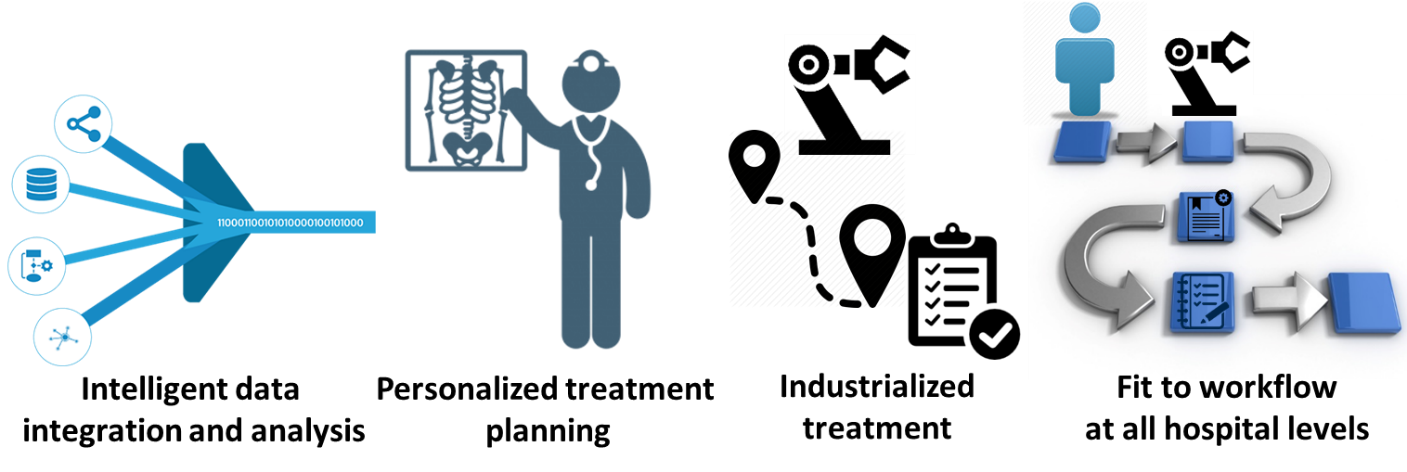
Healthcare faces many challenges like improving patient outcome and working more cost-effectively in the face of growing demand, declining staff capacity and the rapid succession of new clinical and technological developments. The IMPACT project will address these challenges by building on preceding ITEA projects like MEDIATE and BENEFIT to add the next logical step: from evidence-based towards intelligence-based healthcare. To achieve intelligence-based healthcare the IMPACT project will promote automatic data collection and artificial intelligence throughout the complete clinical pathway.
To achieve intelligence-based healthcare the IMPACT project will promote automatic data collection and artificial intelligence throughout the complete clinical pathway, i.e., from hospitalization to patient release:
1. Personalized treatment planning for optimal treatment of each individual patient and thereby improve patient outcome and cost efficiency. This is only possible when all relevant data available is made available and analyzed intelligently using e.g. Artificial Intelligence, Machine Learning, Deep Learning, etc.
2. Industrialized treatment to reduce preventable medical error and improve predictability and efficiency of clinical procedures. Reproducibility is key which can be accomplished by robotic tools, real-time navigation imaging and strictly adhering to medical guidelines and protocols.
3. Workflow optimization at various levels (hospital, room, table side) to remove waste and inefficiency in the healthcare system. This is done by intelligent data-driven analysis (e.g. Deep Learning) considering all relevant data streams to take the right decision at the right moment concerning the patient, the staff and the equipment.
The IMPACT consortium covers all healthcare stakeholders with a good balance between research-oriented partners, technology suppliers, industrial end-product suppliers and clinical end users.
UT RAM Contribution
The UT contribution of this project is mainly in the industrialized treatment part of the project. This includes the development of algorithms that provide shared-control between the robotic system and the clinician supported by image-guidance and deep learning algorithms as feedback to the robotic system. Additionally, the system creates an adaptive clinical workflow that can be adjusted based on the personalized treatment planning.
Partners
This project is part of European consortium that includes industrial, clinical and academic partners from the Netherlands, Sweden and Belgium.
For more information, please visit IMPACT ITEA3 project page at: http://www.impact-itea-
